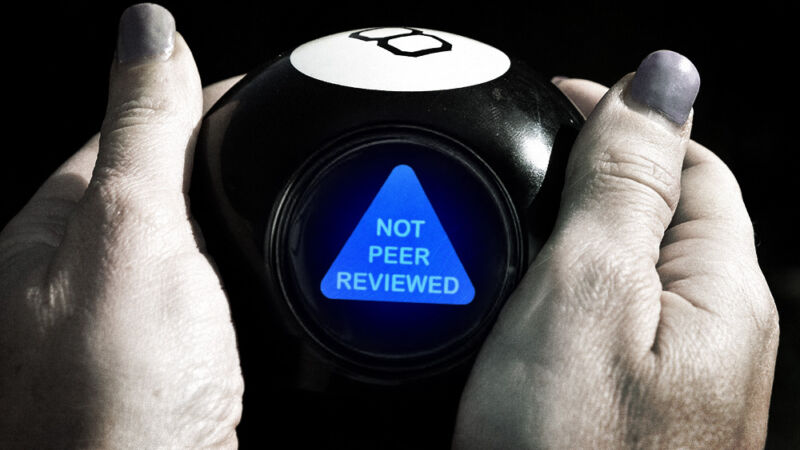The preprint problem: Unvetted science is fueling COVID-19 misinformation

Enlarge (credit: Aurich Lawson / Getty Images)
A significant difference between COVID-19 and past pandemics-even the 2009 outbreak of H1N1-has been the speed with which information on the disease has spread. Partly, that's down to social media, as platforms like Twitter have been embraced by scientists and doctors. But another major factor has been the rise of what we call a preprint-an academic research paper that's posted to a publicly accessible server in advance of it having gone through the traditional process of peer review. When unvetted science that makes bold claims goes straight to the public, that can cause problems, as illustrated by a recent preprint on coronavirus mutations covered by John Timmer earlier today.
How things used to workThe traditional way that scientists share their findings has been through peer-reviewed journals. A scientist-or more typically a team of scientists-conducts their research, writes up the results, and sends them to a journal that covers that particular field. (Or, if they want to make a bigger splash, a multidisciplinary publication like Nature or Science.) When the journal receives the paper, it sends copies out to be reviewed by (usually) three scientists that are also in the same field-peers of the authors. Those reviewers cast a highly critical eye upon the paper, looking for flaws in the methodology and analysis or other potential problems. Sometimes, they don't find any, and the paper sails through and shows up in print soon afterward.
More commonly, one or more reviewers will find something they deem objectionable or insufficient. Each reviewer sends the journal editor their thoughts, often with questions or suggestions to pass on to the authors. Those will typically need to be addressed before the editor will accept the research for publication. Sometimes these are helpful, although not always-many a scientist can tell tales of the mean and vindictive "reviewer 3" who keeps their graduate students and postdocs up at night.
Read 11 remaining paragraphs | Comments